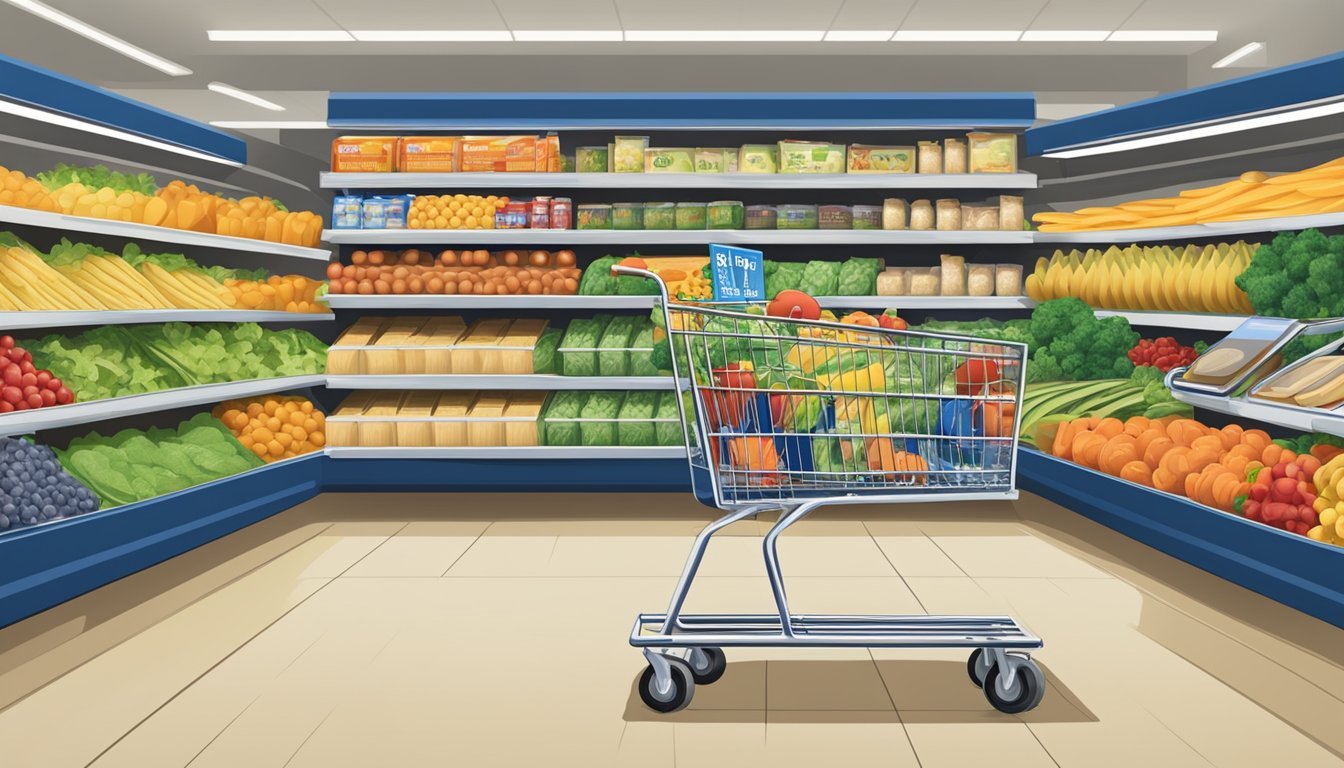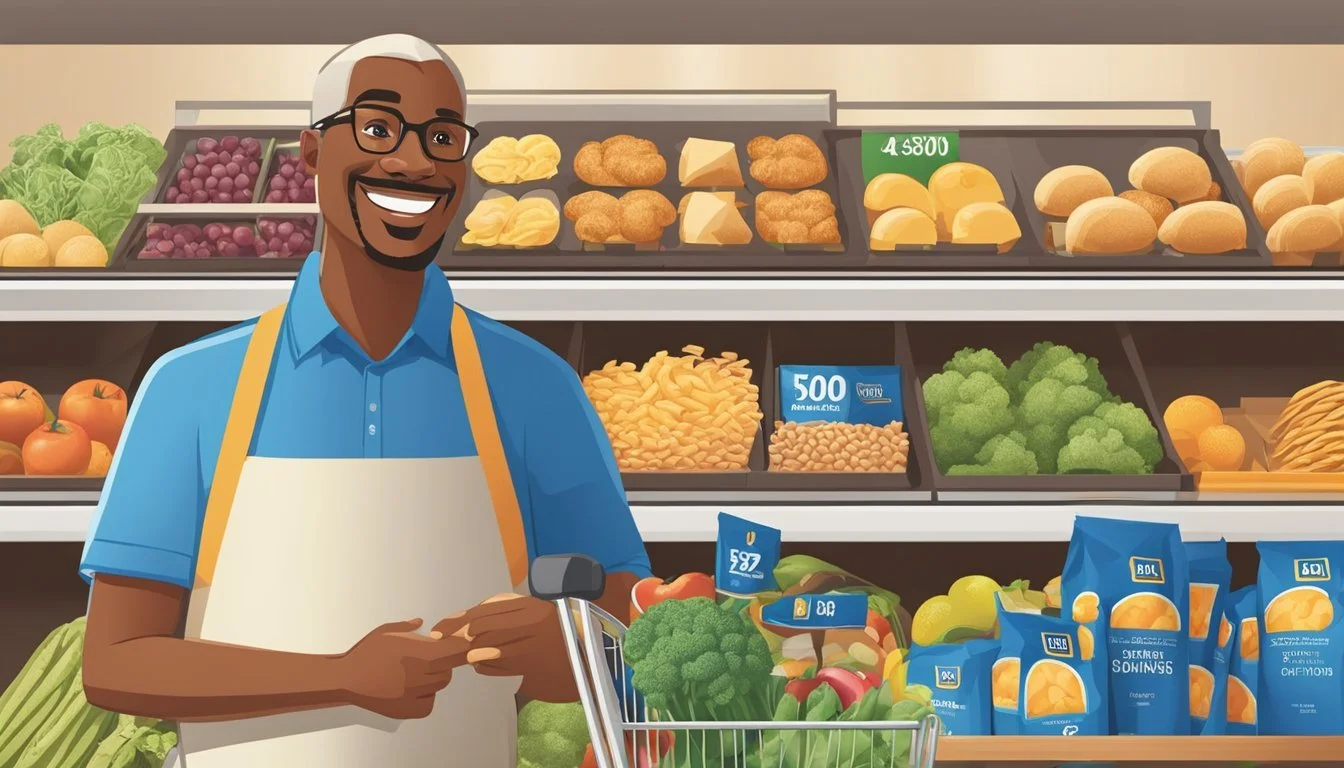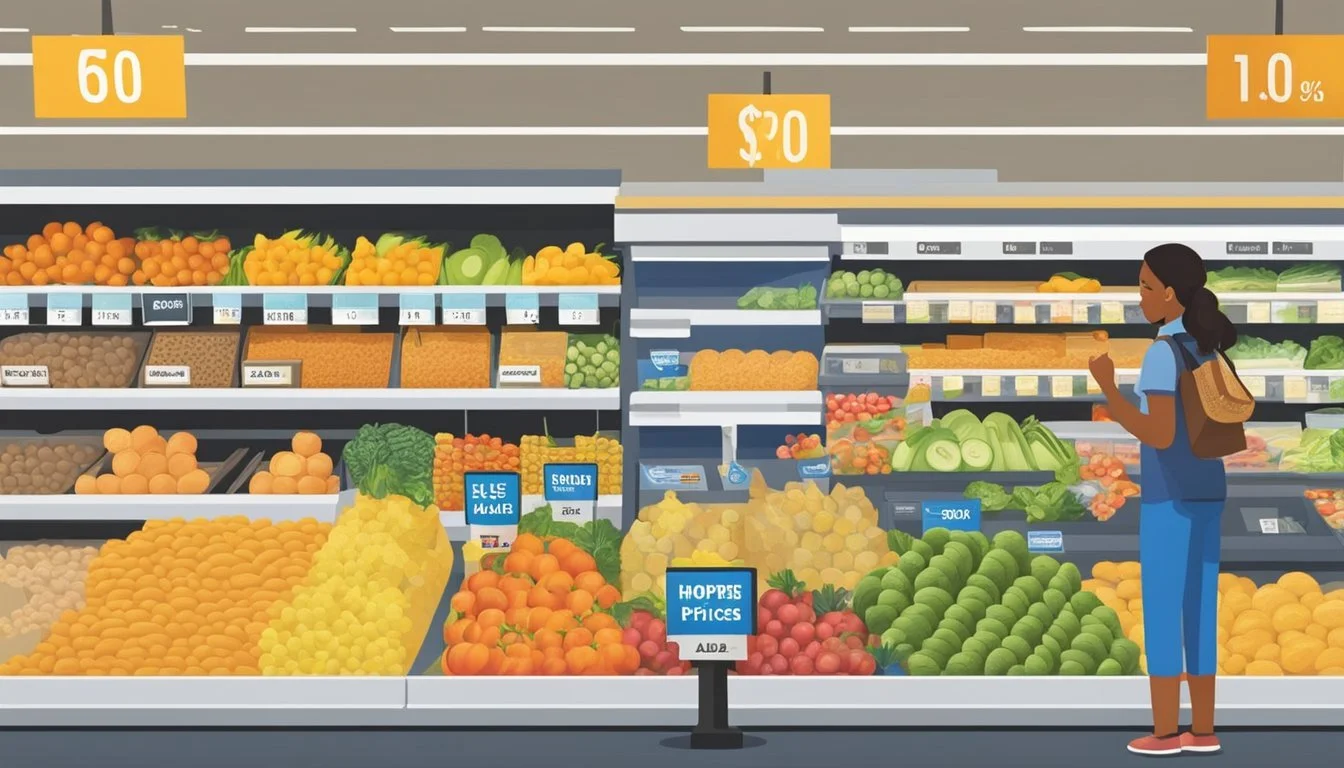Is Aldi Cheaper Than Food Lion?
Comparing Grocery Prices
Part of Our Grocery Store Guide with Details on Aldi Prices and Food Lion Prices
Determining which grocery store offers the best value is a common concern among budget-conscious shoppers. Aldi, a discount grocery chain known for its low prices, competes closely with traditional supermarkets like Food Lion. While Aldi operates with a business model that prioritizes cost-saving measures, such as reduced store hours and leaner staffing, which often allows the store to pass these savings on to the consumers, Food Lion offers a different shopping experience with a potentially wider selection, including more premium brands.
When comparing prices between Aldi and Food Lion, shoppers have noted that the cost of specific items may vary. In some cases, Food Lion has been reported to offer certain products, like canned goods and dairy, for marginally less than Aldi. However, price is not the sole factor for consumers; the shopping experience, brand variety, and product availability are also important. Both Aldi and Food Lion cater to diverse consumer needs, and while Aldi might provide a generally more wallet-friendly bill, Food Lion's appeal lies in its variety and brand options.
The question of which store is cheaper does not have a one-size-fits-all answer, as it often depends on the shopper's priorities. Are overall lowest prices the goal, or is selection and brand diversity more important? Both Aldi and Food Lion position themselves competitively in the market, striving to balance value with choice. Each store has its own advantages that might sway customers in favor of one over the other depending on individual shopping criteria.
Understanding Grocery Pricing
In evaluating grocery store pricing, the focus typically revolves around how prices are determined and the contrasting strategies retailers use to attract customers.
Factors Influencing Prices
The cost of groceries can be affected by a multitude of factors including but not limited to location, supply chain efficiencies, store brand presence, and the scale of operations. Location plays a significant role as operational costs may vary by region, influencing shelf prices. Supply chain efficiencies, such as negotiating power with suppliers or in-house logistics, can lower overhead costs and thereby reduce the price for the end consumer. Stores with a strong store brand presence often price these items lower than national brands, as they can save on marketing and distribution costs associated with name-brand items. Lastly, the scale of operations can play a part; larger chains may benefit from economies of scale, driving down prices through bulk purchasing and more efficient distribution networks.
Comparison of Pricing Strategies
Different grocery chains adopt various pricing strategies to position themselves within the market:
Aldi utilizes a low-price strategy primarily by offering a high percentage of store-brand products, which typically come at a lower cost.
Food Lion might opt for a more diverse strategy, providing a mix of value and selection, balancing lower prices on select items with the convenience of more choices.
Grocery chains may also implement temporary price reductions or sales to create an impression of overall lower prices, even when regular prices are competitive with other stores. They employ psychological pricing to set prices just below a round number (e.g., $2.99 instead of $3.00) to give the illusion of a better deal, which can impact consumers' perception of value.
The table below provides a quick comparison of how these strategies might affect common grocery items:
Item Type Aldi Strategy Food Lion Strategy Store Brands Generally lower prices due to in-house branding Mix of lower prices and national brands Sales Infrequent sales, everyday low prices Frequent sales with loyalty discounts Dairy Usually competitive lower price points Slightly higher price points for brand-name products
It is important for consumers to consider these factors and strategies when determining which retailer offers the better value for their specific grocery needs.
In-Depth Look at Aldi
Aldi is recognized for its cost-saving strategies and streamlined shopping experience that significantly reduce prices for consumers. It maintains a simple store layout and a product selection focused mainly on store brands.
Cost-Effective Business Model
Aldi employs a no-frills approach to retail, focusing on essentials to minimize overhead costs. They save on expenses through various methods such as charging for shopping bags and requiring a deposit to use shopping carts, which customers retrieve upon returning the carts. This model reduces the need for staff to manage these tasks. Aldi's store brands account for the majority of their stock, which allows for lower prices due to the absence of the premium charged by name brands.
Table: Comparison of Business Models
Factor Aldi Model Traditional Model Product Range Curated selection Wide Variety Staffing Needs Minimal More Personnel Store Brands Proportion High (Approx. 90%) Lower Shopping Bag Policy Charge for bags Often free Cart System Deposit required Typically free access
Product Selection and Brands
Aldi offers a selection that revolves around daily basics and essentials. They stock their shelves predominantly with store brands, which are designed to compete with national brand quality at a lower price point. For instance, in the produce section, Aldi tends to offer items at lower prices by limiting selection to the most commonly purchased items. The selection of canned goods, dairy, and frozen foods similarly reflects this focus on fundamental products rather than an extensive array.
Store Layout and Design
The layout of Aldi stores is intentionally simple to facilitate a quick shopping experience. The design is stripped down with narrower aisles and items often displayed in their shipping cartons to reduce restocking time. The stores are typically smaller than traditional supermarkets, which reinforces the low-cost ethos. This minimalistic layout complements Aldi's no-frills approach and underlines the brand's commitment to functionality and efficiency.
Shelves within Aldi stores are stocked in a way that places emphasis on their own store brands, making them easily accessible and highlighting the affordability compared to other options which might be available elsewhere. This practical design ultimately assists shoppers in navigating the store swiftly, mirroring the brand's promise of convenience and value.
In-Depth Look at Food Lion
Food Lion offers affordability paired with a robust selection of goods. They cater to budget-conscious consumers while striving to provide a satisfactory shopping experience.
Brand and Product Variety
Food Lion carries a diversity of brands, including name-brand and specialty items which accommodate the varying preferences of shoppers. The selection spans from fresh produce to pantry staples, enabling customers to find most items on their grocery list.
Service and Shopping Experience
When it comes to customer service, Food Lion prioritizes convenience and accessibility with services like same-day delivery and curbside pickup. The stores are designed to facilitate a pleasant and efficient shopping experience.
Loyalty Programs and Promotions
Food Lion's loyalty programs such as MVP Rewards offer personalized discounts and weekly specials to its members. These programs aim to enhance savings for frequent shoppers, incentivizing repeated visits and creating value through tailored deals.
Price Comparison Between Aldi and Food Lion
In assessing whether Aldi is cheaper than Food Lion, it is crucial to examine specific data on average prices, review deals, and discuss findings from various locations.
Average Prices on Common Items
When comparing average prices on common items, a pattern emerges. Food Lion's canned goods, for instance, tend to be mere cents cheaper than Aldi, with an average difference of about $0.03 per item. However, when it comes to dairy products, Food Lion's prices are slightly higher, averaging $0.30 more per item compared to Aldi. On the flip side, Aldi's dry goods generally carry a higher price tag than those found at Food Lion.
Item Type Aldi Price Food Lion Price Difference Canned Goods $X.XX $X.XX (cheaper by $0.03) +$0.03 Dairy Products $X.XX $X.XX (costlier by $0.30) -$0.30 Dry Goods $X.XX (costlier) $X.XX Varies
Deals and Discounts Analysis
While Aldi maintains a no-frills model, largely eschewing traditional sales and coupons, it does offer lower regular pricing on many private-label items. Food Lion, by contrast, frequently promotes discounts and digital coupons, which can lead to significant savings for customers who actively participate in their rewards programs or take advantage of weekly specials.
Case Studies: Pricing at Different Locations
Various locations show a disparity in the pricing of the two stores. Specific case studies highlight that in some regions, Food Lion's total bill may come in cheaper, with instances showing savings of about 13%, while Aldi generally offers budget-friendly prices due to its minimalist approach. These variations can be influenced by regional deals, availability of products, and differences in promotion frequency.
Quality and Selection
When comparing Aldi and Food Lion, consumers will find differences in quality and selection across various categories. Each store has its approach to sourcing and offering products, which affects the range of items and the quality consumers might expect.
Assessing Fresh Produce Quality
Aldi's model includes a curated selection of fresh produce that aims for high turnover, ensuring freshness. Their limited assortment streamlines operations and often leads to lower prices. Food Lion, however, provides customers with a broader variety of fruits and vegetables, potentially including more organic options. This might appeal to those seeking specific items not typically stocked by Aldi.
Meat and Deli Comparisons
The quality of meat and deli items can vary significantly between retailers. Aldi offers a range of prepackaged meats and deli items, emphasizing affordability and staple products, often under their store brand. Food Lion, with a more extensive selection, may cater better to shoppers looking for specific cuts or premium brands not available at Aldi.
Bread, Dairy, and Pantry Staples
Bread quality at both stores is generally reliable, with Aldi providing staple choices often at lower prices. For dairy, both Aldi and Food Lion offer comparable basics like milk and eggs, with Aldi typically edging ahead in terms of cost savings. As for pantry staples—such as canned goods, dry pasta, and cereals—Aldi usually stocks predominantly store-brand items focused on cost-effectiveness, while Food Lion offers a mix that includes well-known national brands.
Shopping Experience and Convenience
Addressing the shopping experience and convenience at Aldi and Food Lion illuminates different approaches to grocery shopping. Each store offers unique hours, customer service, and online amenities that cater to varying consumer preferences.
Store Locations and Hours
Aldi has established a strong presence with 2,304 stores across 39 states, espousing a no-frills operation with competitive prices. The stores typically operate from 9:00 AM to 8:00 PM, although local variations may apply. Conversely, Food Lion operates over 1,000 stores predominantly in the Southeast and Mid-Atlantic regions, often featuring longer hours to accommodate a variety of schedules, with most locations open from 7:00 AM to 11:00 PM.
Customer Service and Support
At Food Lion, customers can expect a broader selection, including brand-name and specialty items, which necessitates a robust customer service component. In contrast, Aldi focuses more on private-label products and streamlines their customer support to reflect their simplified shopping model. Both retailers train their staff to be responsive to customer inquiries, with a clear emphasis on efficiency and friendliness.
Online Shopping and Delivery Options
Both Aldi and Food Lion have adapted to the digital marketplace, providing customers with online shopping and delivery services. Aldi partners with third-party services like Instacart, facilitating a user-friendly online shopping experience for their customers. Food Lion also offers online shopping through their “Food Lion To Go” service with convenient in-store pickup and delivery options. The delivery times and fees vary based on location and the selected time slot.
Additional Factors to Consider
When deciding between Aldi and Food Lion, price is a significant concern; however, other factors play a role in the overall value and shopping experience.
Store Atmosphere and Layout
Aldi's stores usually offer a no-frills, straightforward design focused on efficiency, which can help shoppers save time. The smaller store size limits the selection but simplifies the shopping process. On the other hand, Food Lion provides a more traditional supermarket feel, with a broader range of products and a more familiar layout, which may appeal to shoppers looking for variety.
Packaging and Sustainability
Both retailers show commitment to sustainability, but Aldi has a notable approach to minimizing packaging to reduce waste, which can sometimes result in lower costs. Food Lion, while also taking measures to improve sustainability, generally maintains conventional packaging practices that shoppers might be more accustomed to, potentially affecting their prices and environmental impact.
Grocery Shopping on a Budget
For those looking to stretch their dollar, Aldi often proves to be the more cost-effective choice, particularly for shoppers with a strict meal plan and budget. They achieve this by offering private-label brands, which are priced lower than national brands typically found at Food Lion. However, it's essential to account for one's brand preferences and the price-per-unit when comparing costs to ensure the best deals.
Conclusion
When considering which grocery store offers the best cost savings, Aldi and Food Lion both present competitive options. Aldi is often perceived as the more budget-friendly choice due to its cost-effective pricing model. This model includes a focus on private label brands and an efficient store layout that helps keep operational costs low, which translates into savings for customers.
Food Lion, however, sometimes emerges as the less expensive option in certain categories, such as the dairy aisle, where it has been noted to have prices slightly lower than Aldi. Although Aldi's bag of shredded cheese is only available in larger sizes, which can give a perception of better value due to the larger quantity, the bottom line of unit pricing often favors Food Lion.
Customers also ought to factor in the variety and selection when making their decision. Food Lion offers a broader assortment of items, potentially providing a more comprehensive shopping experience for those who seek specific brands or premium products.
In summary, both Aldi and Food Lion offer economical choices for different needs. The decision on where to shop may come down to personal preferences, such as whether cost savings or product selection is the higher priority. Shoppers are advised to comparably assess prices and consider their specific shopping lists before committing to one store over another.






